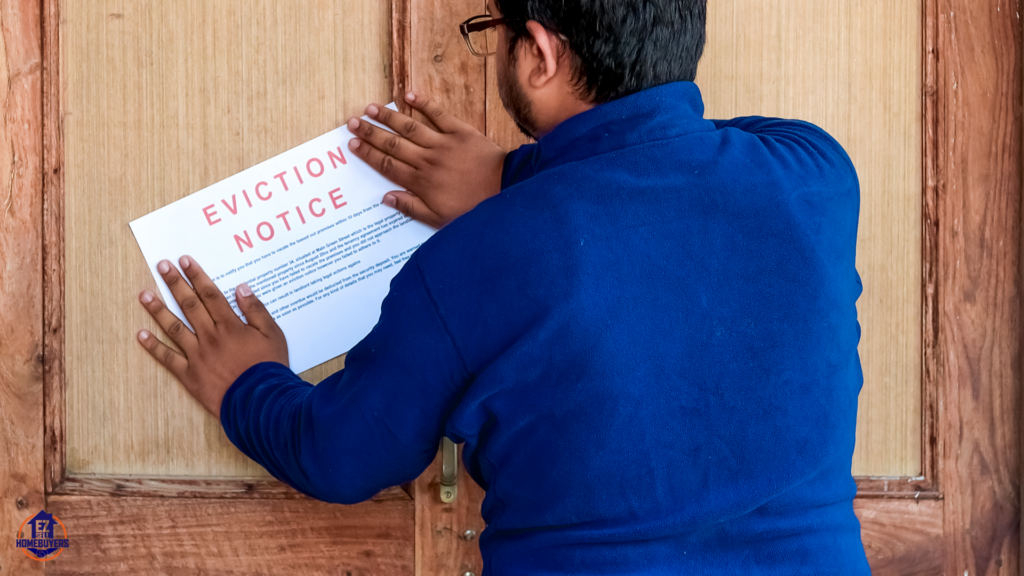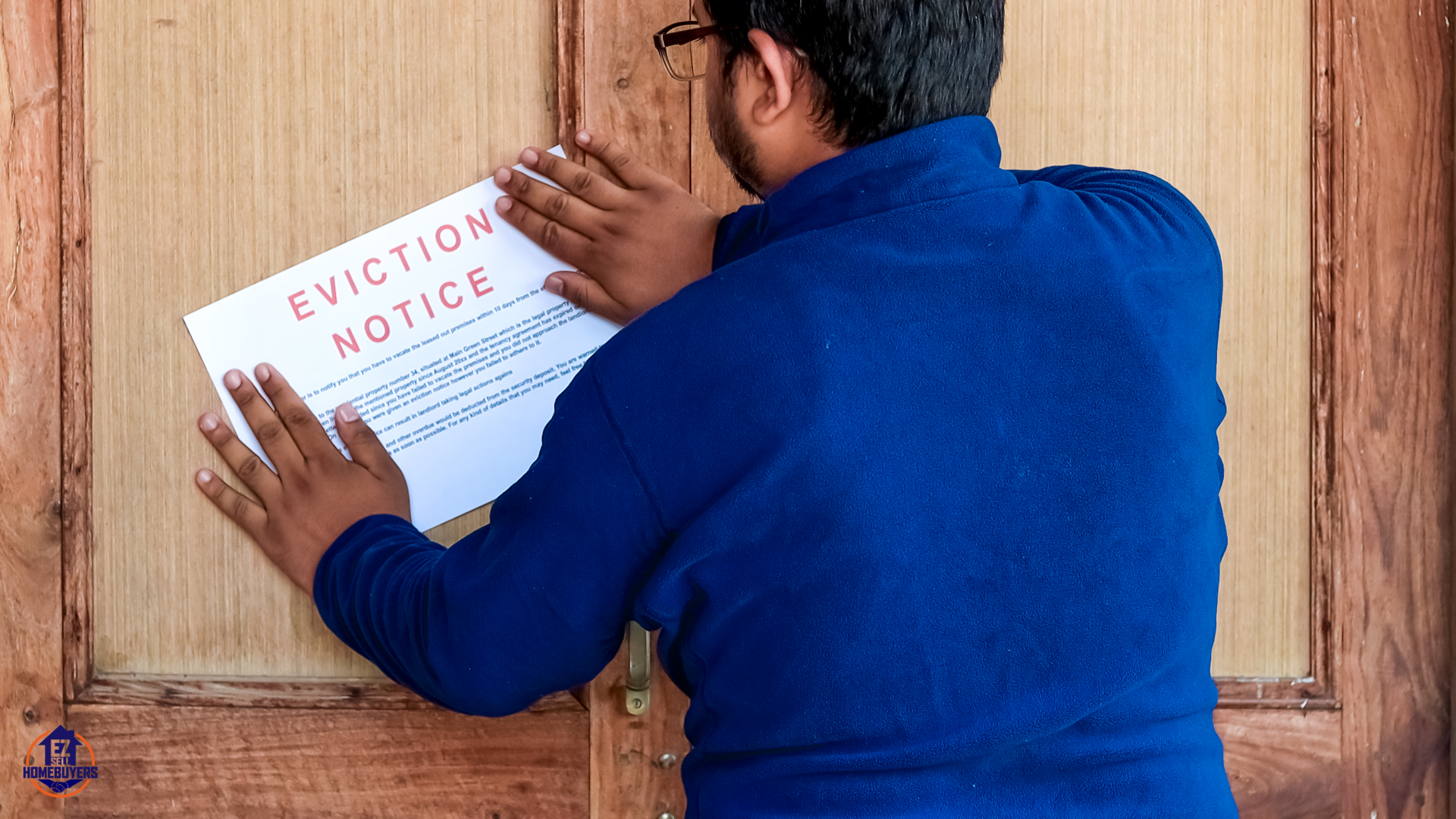Evicting a tenant without a lease in Ohio in 2025 can still be a complex and emotionally draining task. As a landlord with over two decades of experience managing properties across Ohio, I understand the unique challenges landlords face, especially with tenants in month-to-month arrangements or informal agreements. Despite the absence of a written lease, Ohio law provides specific protections for both landlords and tenants, making it essential to follow proper legal procedures.

Understanding Ohio Eviction Laws Without a Lease (2025)
In Ohio, tenants without a formal lease are still protected under the Ohio Revised Code Chapter 5321, which governs landlord-tenant relationships. Whether the agreement is verbal or implied through payment and occupancy, landlords must pursue eviction legally through the court system.
Common Reasons to Evict a Tenant Without a Lease in Ohio
You may seek to evict a tenant without a lease for several legally valid reasons, including:
- Nonpayment of rent: Even without a lease, rent is typically expected on a monthly basis.
- Violation of rental terms: This includes damaging the property, disturbing neighbors, or engaging in illegal activity.
- Termination of a month-to-month tenancy: Either party can end the agreement with proper notice.
The Legal Eviction Process Without a Lease in Ohio (2025)
Here are the four essential steps you need to follow:
Step 1: Serve a Notice to Vacate
Ohio law requires landlords to serve the proper notice before initiating an eviction:
- Nonpayment or lease violations: Issue a 3-Day Notice to Quit.
- Month-to-month tenancy termination: Issue a 30-Day Notice to Vacate.
Notices must be delivered in person, posted on the premises, or sent via certified mail to be legally valid.
👉 Download a sample Notice to Vacate (2025)
Step 2: File an Eviction Complaint
If the tenant doesn’t leave, file an eviction complaint in your local Municipal or County Court. Include:
- Proof of notice delivery
- The reason for eviction
- Any unpaid rent or damages
As of 2025, filing fees in Ohio typically range from $135 to $195, but check with your specific court for current costs.
Step 3: Attend the Court Hearing
Both parties will present their case before a judge. Bring:
- Documentation of rent payment history
- Photos of any damage
- Copies of served notices
- Communication records
If the judge rules in your favor, you’ll receive a judgment for possession.
Step 4: Obtain a Writ of Restitution
The court will issue a Writ of Restitution, which authorizes the local sheriff to remove the tenant legally. Never attempt to change locks or remove belongings yourself—this is illegal under Ohio law and can result in penalties.
🔗 More on Ohio eviction court procedures from the Ohio Judicial System
Tenant Rights in Ohio Without a Lease (2025)
Tenants still have rights, including:
- Proper notice before being evicted
- Due process in court
- Protection from illegal “self-help” evictions (e.g., shutting off utilities, changing locks)
Common Mistakes to Avoid
Avoid these costly errors during the eviction process:
- Giving the wrong type of notice or insufficient notice period
- Attempting to evict without a court order
- Failing to attend the court hearing
- Lack of documentation
When to Consider Selling Instead of Evicting
If the eviction process becomes too time-consuming or expensive, consider selling your rental property to a cash investor. These buyers purchase properties quickly and as-is, saving you from legal fees, property damage, or additional headaches.
👉 Learn more: Sell My House Fast Ohio
👉 We buy houses in Dayton: We Buy Houses Dayton OH
Final Thoughts
Evicting a tenant without a lease in Ohio in 2025 is entirely possible when done legally and with careful preparation. If you’re ever unsure, consult an Ohio landlord-tenant attorney to ensure you’re following current laws and procedures.
Frequently Asked Questions (FAQ)
1. Can I evict a tenant in Ohio if there is no lease agreement?
Yes, you can evict a tenant in Ohio without a written lease agreement. However, you must follow Ohio’s eviction laws, including providing proper notice and obtaining a court order. The process is governed by Ohio landlord-tenant laws, which protect tenant rights even without a formal lease.
2. What are the main reasons to evict a tenant without a lease in Ohio?
Common reasons include nonpayment of rent, violation of oral rental agreements, and the natural end of a month-to-month tenancy. These grounds are similar to those used when there is a written lease agreement.
3. How much notice do I need to give to evict a tenant without a lease in Ohio?
Typically, Ohio law requires a 30-day notice for month-to-month tenants. For specific issues like nonpayment of rent or lease violations, a shorter notice period, such as a 3-day notice to quit, may apply.
4. What happens if the tenant does not leave after the notice period?
If the tenant fails to vacate after the notice period, you must file an eviction complaint with the local Municipal or County Court. This legal action will lead to a court hearing where both parties can present their cases.
5. How can I legally remove a tenant after winning the eviction case in court?
Once you win the eviction hearing, you must obtain a Writ of Restitution, which is a court order authorizing the physical removal of the tenant by the local sheriff. This step is essential to reclaim your property legally.
6. Can I change the locks or remove tenant belongings if they refuse to leave?
No, Ohio law prohibits landlords from taking self-help actions such as changing locks or removing tenant belongings without a court order. These actions can lead to legal consequences against the landlord.
7. Are tenants in Ohio still protected if they don’t have a lease?
Yes, tenants without a lease still have rights under Ohio law, including the right to proper notice and due process during eviction. Landlords must follow legal eviction procedures to avoid violating these tenant protections.
8. What should I do if I make a mistake during the eviction process?
If you make a mistake, such as failing to provide the correct notice, it can delay the eviction process or lead to case dismissal in court. It’s best to consult with an attorney specializing in Ohio landlord-tenant laws to correct errors and ensure compliance.
9. How can I avoid the hassle of evicting a difficult tenant?
If eviction becomes too burdensome, consider selling the property to a cash investor. Cash investors can purchase the property quickly, often as-is, which allows you to avoid further legal and financial challenges associated with difficult tenants.
10. Where can I find legal help for tenant evictions in Ohio?
For expert guidance, you can consult an experienced Ohio landlord-tenant attorney. Legal professionals can provide valuable advice on navigating the eviction process and protecting your rights as a landlord.

